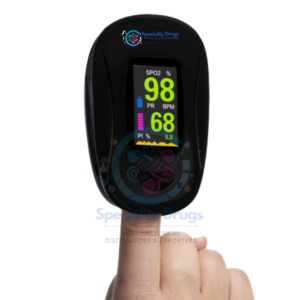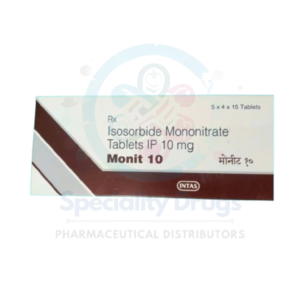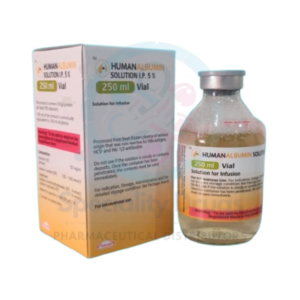What is Calcium Chloride Injection I.P.?
Calcium Chloride Injection I.P. is a sterile, injectable solution containing calcium chloride, an essential mineral that plays a vital role in several physiological functions. It is commonly used in emergency and hospital settings for the rapid correction of acute calcium deficiencies.
What is the Use of Calcium Chloride Injection I.P.?
Calcium Chloride Injection I.P. is used for:
-
Treating severe hypocalcemia (low calcium levels in the blood)
-
Managing cardiac arrest or life-threatening arrhythmias due to hyperkalemia (high potassium levels)
-
Counteracting magnesium sulfate overdose
-
Calcium replenishment during resuscitation efforts
-
As an adjunct therapy in situations like calcium channel blocker overdose or certain types of shock
Benefits of Calcium Chloride Injection I.P.
-
Rapid action: Provides immediate elevation of calcium levels in critical situations
-
Life-saving: Essential in reversing severe electrolyte imbalances during emergencies
-
Cardiovascular support: Helps stabilize heart function in conditions like hyperkalemia or calcium channel blocker toxicity
-
Essential mineral restoration: Supports nerve, muscle, and enzyme function
Side Effects of Calcium Chloride Injection I.P.
Common and potential side effects include:
-
Local irritation or burning at the injection site
-
Hypotension (low blood pressure) if infused rapidly
-
Cardiac arrhythmias, especially with rapid administration
-
Hypercalcemia (too much calcium), leading to symptoms like nausea, vomiting, confusion, or weakness
-
Tissue necrosis if extravasation occurs (leakage outside the vein)
Precautions and Warnings
-
Use only under medical supervision, preferably in a hospital setting
-
Administer slowly via IV, never intramuscularly or subcutaneously
-
Monitor serum calcium levels regularly during treatment
-
Use caution in patients with renal impairment or heart disease
Storage and Handling
-
Store at controlled room temperature (usually between 15°C to 25°C)
-
Protect from light and do not freeze
-
Check for particulate matter or discoloration before use
-
What is Calcium Chloride Injection I.P.?
It is a sterile injectable solution used to treat acute calcium deficiencies, certain heart conditions, and electrolyte imbalances. -
What is Calcium Chloride Injection I.P. used for?
It is used to treat severe hypocalcemia, hyperkalemia, magnesium toxicity, and in cardiac resuscitation during life-threatening conditions. -
How is Calcium Chloride Injection administered?
It is given intravenously (IV) by a healthcare professional, typically in a hospital or emergency setting. -
Can Calcium Chloride Injection be given intramuscularly (IM)?
No, it should not be given IM or subcutaneously due to the risk of severe tissue irritation or necrosis. -
How quickly does Calcium Chloride Injection work?
It acts rapidly, often within minutes, making it ideal for emergency situations requiring quick correction of calcium levels or cardiac stabilization. -
What are the common side effects of Calcium Chloride Injection?
Possible side effects include burning at the injection site, hypotension, bradycardia, nausea, or tissue damage if extravasation occurs. -
What are the serious risks of using Calcium Chloride Injection?
Overdose or incorrect administration may lead to hypercalcemia, arrhythmias, cardiac arrest, or tissue necrosis. -
When is Calcium Chloride preferred over Calcium Gluconate?
Calcium Chloride is used in critical/emergency cases because it delivers more elemental calcium and acts faster than calcium gluconate. -
Can Calcium Chloride Injection be used during cardiac arrest?
Yes, it is sometimes used during advanced cardiac life support (ACLS) for patients with cardiac arrest related to electrolyte imbalance. -
Can pregnant or breastfeeding women receive this injection?
It should only be used during pregnancy or breastfeeding if clearly needed and prescribed by a healthcare provider. -
What should be monitored during Calcium Chloride administration?
Continuous monitoring of cardiac function, electrolytes, and serum calcium levels is essential during use. -
Is there any interaction with other drugs?
Yes, it may interact with digoxin, calcium channel blockers, and other IV medications. Always inform your doctor of all current drugs. -
What should I do if I experience burning or pain during injection?
Notify the healthcare provider immediately, as this may indicate extravasation, which requires prompt attention to avoid tissue damage. -
Can this injection be self-administered at home?
No, Calcium Chloride Injection should only be administered by qualified medical professionals in a clinical setting. -
How should Calcium Chloride Injection be stored?
Store at room temperature, protected from light. Do not freeze or use if the solution is discolored or contains particles.






Reviews
There are no reviews yet.